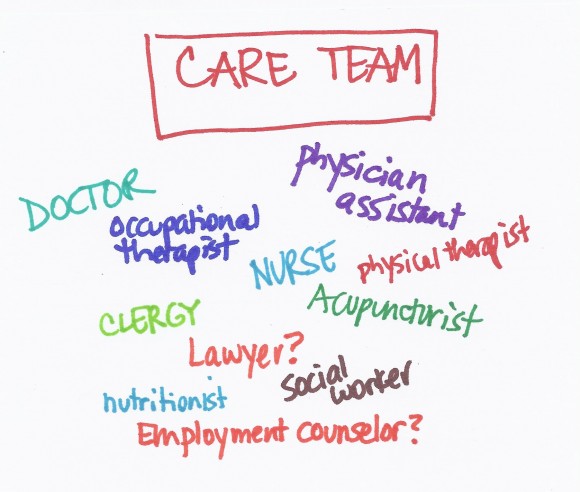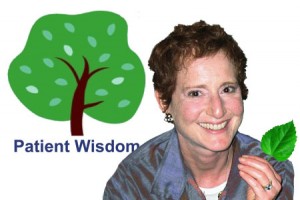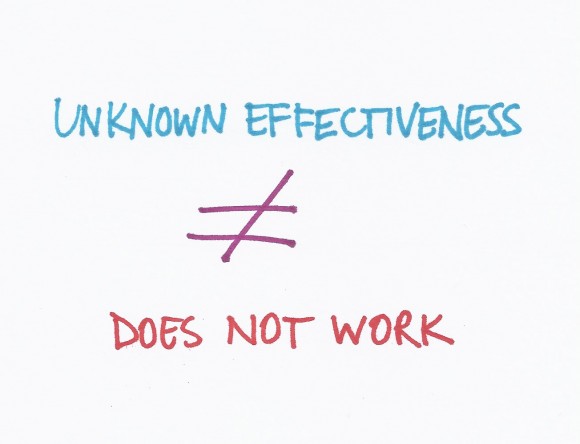Category: Evidence
Are screening tests good for you?
If we had a serious disease, we’d like to learn about it before we even had symptoms (so we could get started on treatment). And most of us would like to know if we were at risk of developing a serious disease (so we could make changes to prevent the disease). Right?
Two recent articles in the NY Times point out the problems with screening tests.
Who makes the best medical student?
As I begin my 4th year interviewing prospective medical students, I am reminded of how challenging it is to figure out which applicants will possess all of the characteristics that I would want in my own doctor.
There is little question that we need to rethink the way we educate medical students to meet the needs of a changing healthcare system. Medicine is no longer a paternalistic practice where the doctor tells the patient what to do. Not only are patients becoming more empowered to participate in the own care, but they also have information at their fingertips about their own conditions and can access online discussion groups to talk with other patients about their shared experiences. The blog Wing of Zock looks at innovative ways to redesign medical education.
Redefining the care team
 When I was in clinical practice as an infectious diseases specialist, most of my patients were very sick and hospitalized but I saw a small number of outpatients as well. They were often people who had nonspecific complaints and were convinced that they had a chronic infection that their doctors were missing. They often arrived with numerous records – laboratory tests results, x-ray reports and consultation letters from other doctors.
When I was in clinical practice as an infectious diseases specialist, most of my patients were very sick and hospitalized but I saw a small number of outpatients as well. They were often people who had nonspecific complaints and were convinced that they had a chronic infection that their doctors were missing. They often arrived with numerous records – laboratory tests results, x-ray reports and consultation letters from other doctors.
While it is certainly possible that these patients had an infectious disease that we don’t know about yet or that I had missed, many of them had significant stress in their lives – housing issues, trouble with their children or spouses, difficulites at work, etc. There is a lot of evidence that stress can lead to serious health issues including heart attacks.
The wisdom of patients
 Last week was the third anniversary of the death of my lifelong friend, Judy Feder. In 2001, Judy was diagnosed with Stage IV breast cancer at the age of 45.
Last week was the third anniversary of the death of my lifelong friend, Judy Feder. In 2001, Judy was diagnosed with Stage IV breast cancer at the age of 45.
I was involved in a health internet start-up at the time and knew about Gilles Frydman’s pioneering work in creating a collection of online patient communities called the Association of Cancer Online Resources (ACOR). Judy joined the group for patients with metastatic breast cancer. She embraced online communications (perhaps at least in part because she was a public relations professional) and participated in a second breast cancer online community called BC Mets as well. You can read about her 8-year breast cancer journey in this article in the Journal of Participatory Medicine, the journal of the Society for Participatory Medicine of which she was a founding member.
Technology is bad…and good
During my last year in medical school, I was sitting on a bus on a cold winter day when I realized that my finger tips felt numb. I took off my gloves and watched the color of my fingers go from white to blue to red. I knew from my studies that this was Raynaud’s phenomenon and was caused by the blood vessels in my fingers becoming narrowed (going into spasm) due to the cold. I also knew that this was a relatively common problem in women. Unfortunately, I also knew that it could be a sign of something more serious, such as lupus or rheumatoid arthritis. Medical students are known to be hypochondriacs and I went to see my physician the next day convinced that I was gravely ill. He was an incredibly warm and caring person and explained to me that he didn’t think it made sense to test for all the things it could be and that we should just see what happened over time. He reassured me and I felt better. This was doctor-patient communication at its best.
I believe strongly that the relationship between a doctor and a patient can lead to healing by itself. And there is little question that doctors have less time to listen to us than they did many years ago – in fact some studies suggest that it is as little as 7 or 8 minutes on average. And with more diagnostic tests available – specialized x-rays, CT scans, MRIs, etc – doctors are more likely to perform tests than take the time to listen to us. If they are using an electronic health record, they may seem more interested in entering information than in hearing what we have to say.
Think before you eat
We may be eating in unhealthy ways without realizing it. Even healthy foods can lead to problems in certain people – for example dairy products in people who are allergic to them or wheat in people who have celiac disease. But even if food does not cause a bad reaction in us, there is research evidence that we are not in as much control of what we are eating as we think we are.
The first problem is that we often eat without thinking. Dr. Brian Wansink at Cornell University has done some fascinating experiments (which he writes about in his book, Mindless Eating) that look at why we eat more than we think. In one experiment he had people eat bowls of soup while he watched them using hidden cameras. For some people, more soup was piped into the bowl (without them knowing it) as they were eating – it was a bottomless bowl. These people ate more soup than those who had a regular bowl. Similarly, he has shown in experiments that people will eat less food if they use a smaller plate. In yet another experiment, he went to a movie theatre where a first-run movie was playing just after lunch on a Saturday. He prepared popcorn in advance and made sure it was really stale but still safe to eat. He offered each person who bought a ticket a free soft drink and a bucket of popcorn (some buckets were medium in size and some were large but all were too big to finish). People who got the large containers, ate more popcorn (even though it was stale). He surveyed people when they were leaving the theatre and most people who had the large buckets said that they would not be fooled into eating more popcorn by a larger bucket.
Does food cause inflammation?
I am fascinated by food – what makes us eat the food we eat and how it affects our health. I’m especially interested when there is evidence to support the ideas.
As the American diet has changed in the past few decades, we have been gaining weight. It is also true that we are seeing more diseases – especially those that have an inflammatory component. Inflammation is when the body responds to things that shouldn’t be there – like an infection or a chemical – and the body sends cells to the area to fight them off. This can lead to pain and swelling, among other things. Some diseases caused by inflammation have “itis” at the end – arthritis, colitis, bronchitis, etc.
Is it possible that the food we eat is causing some of these diseases that are due to inflammation?
What’s the alternative?
A recent blog post on The Health Care Blog entitled Choosing Alternative Medicine raises some really interesting issues. The author, James Salwitz, MD complains that patients are turning to complementary and alternative medicine (CAM) therapies when they could be cured by “conventional” therapy. I think the real problem is that people are being treated with therapies that have not been proven to work when there are other more effective treatments available. Patients need to be given enough information about the research evidence to make informed choices. After learning about the evidence, if they choose a therapy that has not been proven to work when there are more effective treatments available, I would consider that an informed decision.
Rather than saying some medicines are “alternative” and some are “traditional” we should look at all treatments for which there is evidence to treat a particular condition. If there is evidence that an herbal remedy or vitamin works even if it is not as good as the evidence for a drug, patients should be able to make the right choice for them based on the evidence. Doctors need to be open to thinking about CAM therapies as treatment options if there is evidence to support their use.
New types of evidence
It can be difficult to figure out how to use the results of research studies (randomized controlled trials or RCTs) to make a healthcare decision. There are many other problems with RCTs that may be less obvious.
First, to perform an RCT can take years – you need to get approval from the hospital where you are performing the study because you are doing research on humans. Then you need to get funding for the study so you may need to apply for some grants. After the study is completed, the results need to be analyzed; and then a paper needs to be written and submitted for publication to a journal. It could take years from the time the results are known until the time they are published.
Many commonly used treatments may not work
 A Washington Post WonkBlog piece entitled “Surprise! We don’t know if half our medical treatments work” got a lot of attention in social media circles. The title is a bit misleading but the concepts are really important. First, let me say that I worked at the BMJ for 8 years and was involved with the Clinical Evidence publication that is discussed in the blog so I may be a little biased!
A Washington Post WonkBlog piece entitled “Surprise! We don’t know if half our medical treatments work” got a lot of attention in social media circles. The title is a bit misleading but the concepts are really important. First, let me say that I worked at the BMJ for 8 years and was involved with the Clinical Evidence publication that is discussed in the blog so I may be a little biased!
The way doctors determine if medical treatments work is to perform research studies called randomized controlled trials (RCTs). These are studies where half the patients get a treatment and half get a placebo (or inactive treatment like a sugar pill) but the patients and the researchers do not know who is getting what. After a period of time (could be years), the researchers look at the results and figure out which group did better.